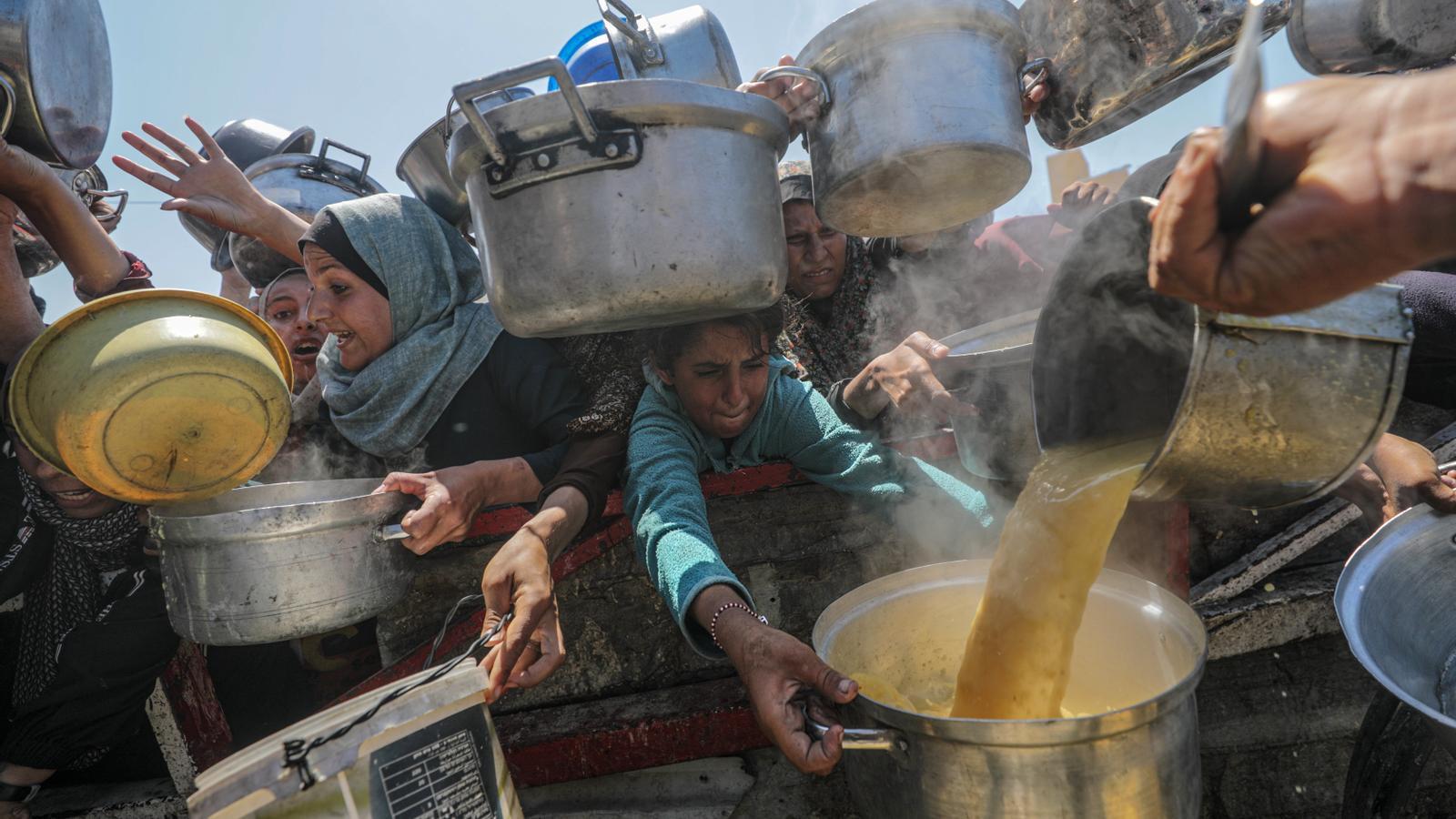Israel threatens to ban more than 100 NGOs in Gaza
Tel Aviv rejects the vital aid offered, which accumulates at the border, citing a regulation requiring NGOs to share sensitive information about their Palestinian workers.

BarcelonaAfter 22 months of war that have left more than 60,000 dead, the population of Gaza is subjected to unbridled hunger and the vast majority live in displaced persons camps after constant evacuation orders issued by the Israeli armyMeanwhile, hundreds of tons of food, medicine, and other vital supplies are stored across the border but have not received Israeli authorization to enter.
Since March, the Israeli government has blocked most international NGOs from entering Gaza, claiming that these organizations "are not authorized to deliver aid." This Thursday, more than 100 NGOs reported that Israeli authorities have rejected their requests to bring vital supplies into the Strip, citing a new regulation passed in 2025 that requires them to share sensitive information. This regulation imposes highly intrusive registration requirements, such as mandatory submission of private donor data, full lists of Palestinian staff, and other sensitive information about them.
The organizations denounce that this allows Israel to deny them entry based on "strikes and politicized" criteria, in a process they claim is specifically designed to "control independent organizations, silence human rights defenders, and censor humanitarian information." They also emphasize that sharing this data is illegal, as it is incompatible with data protection laws and basic principles of humanitarian law. Furthermore, given that the Gaza war is the deadliest war for humanitarian workers worldwide and that 98% of the workers killed were Palestinian, the organizations believe that handing over this information to Israel would put the lives of their staff at risk.
In July alone, more than 60 applications were denied under this pretext, according to the letter signed by 100 organizations, including Action Against Hunger, Anera, Care, Caritas, Doctors of the World, Doctors Without Borders, Oxfam, and Save the Children. This obstruction has left millions of dollars' worth of food, medicine, water, and essential items stranded in warehouses in Jordan and Egypt.
"Anera has over $7 million worth of vital supplies ready to enter Gaza, including 744 tons of rice," says Sean Carroll, president and CEO of this American NGO. This amount of food could feed six million people, but it is blocked in Ashdod, a few kilometers from Gaza. "Since the full siege was imposed on March 2, CARE has not been able to deliver any of the provided supplies, valued at $1.5 million, to Gaza," explains Jolien Veldwijk, CARE's country director. She says these supplies include food parcels, medical supplies, and hygiene kits.
NGOs denounce that this law that denies them access to the Strip is part of the Israeli government's strategy that includes the distribution of food through the Gaza Humanitarian Foundation to prevent the Palestinian population from accessing humanitarian aid and turning "hunger into a weapon"At least 859 people have died at these distribution points, run by military company workers rather than humanitarian workers, since they began operating.
More illegal settlements
As Gaza becomes uninhabitable, Israel moves forward with plans to occupy the West Bank. Finance Minister Bezalel Smotrich has announced plans to approve bidding for up to 3,000 homes in the controversial E1 settlement project between Jerusalem and Ma'ale Adumim in the West Bank, settlements that are illegal under international law. This project had been frozen for decades due to intense pressure from the international community, because the establishment of this settlement would prevent the development of a Palestinian area linking East Jerusalem with Bethlehem and Ramallah.
"We will bury the Palestinian state, Europe will have nothing to recognize," Smotrich said, according to the Haaretz"The approval of the construction plans in E1 buries the idea of a Palestinian state and continues the many steps we are taking on the ground as part of the sovereignty plan. de facto [on the West Bank] that we began to implement with the establishment of the government," the minister told the newspaper The Times of Israel. In statements to Reuters, the minister reported that the plan, which is expected to take effect on Wednesday, had received the approval of US President Donald Trump and Israeli Prime Minister Benjamin Netanyahu.
The Israeli group Peace Now has denounced the plan as "deadly for Israel's future" and as "burying any possibility of achieving a peaceful two-state solution." "We are on the brink of an abyss, and the government is pushing us forward at full speed," the group denounced.
